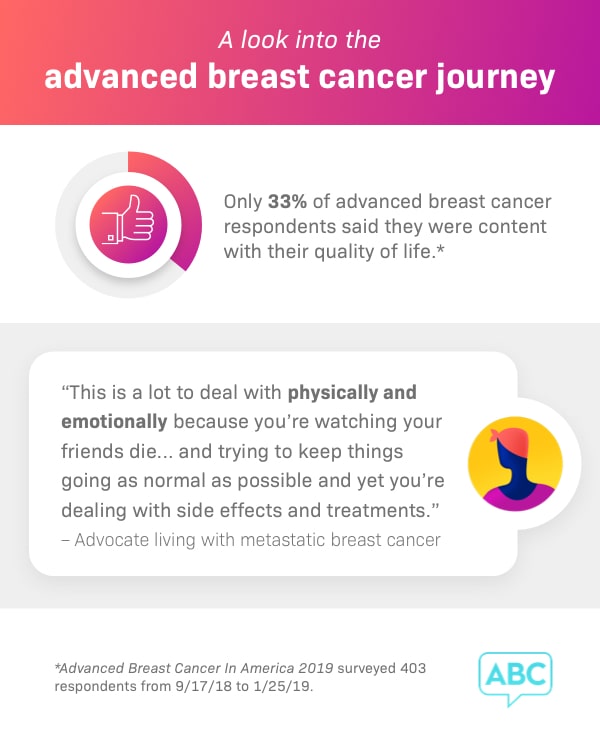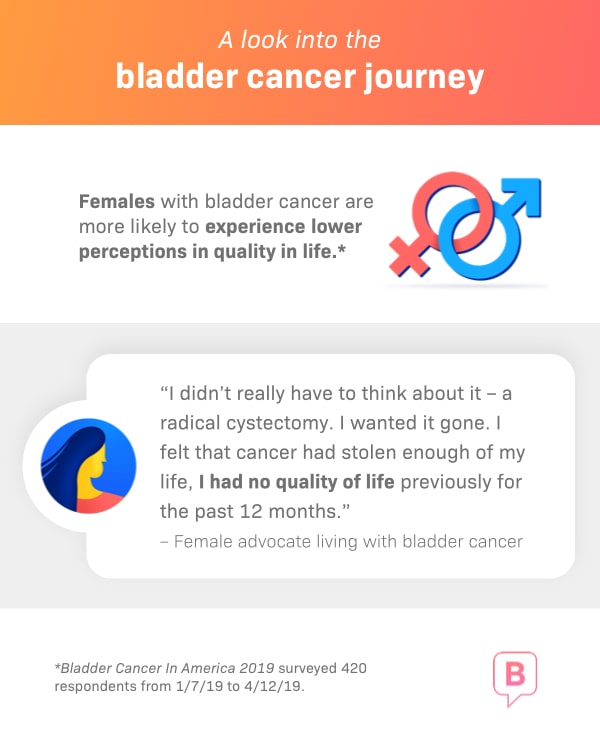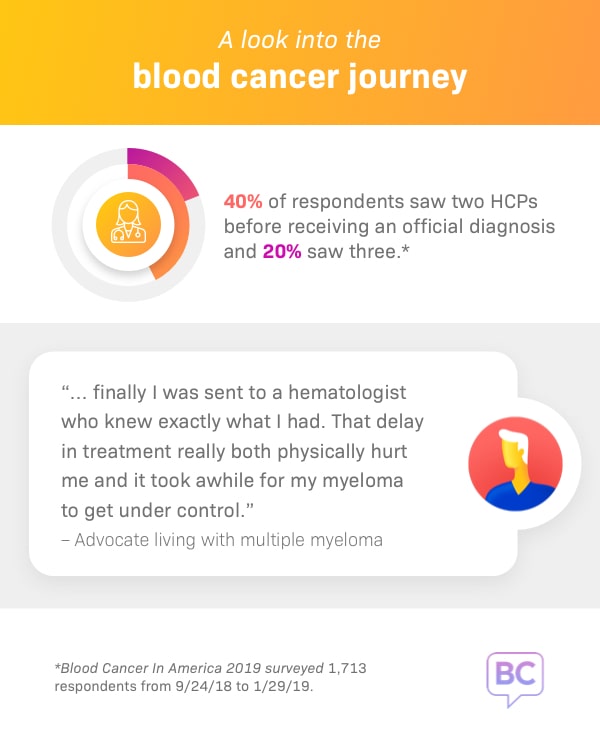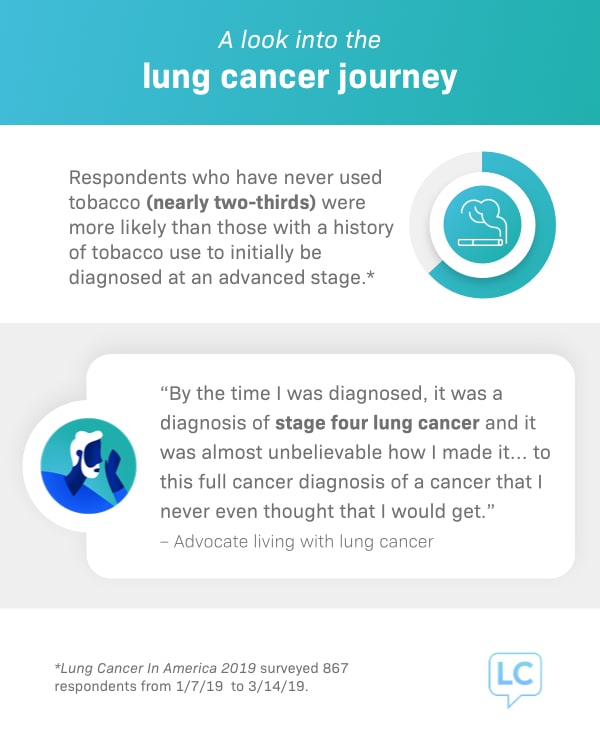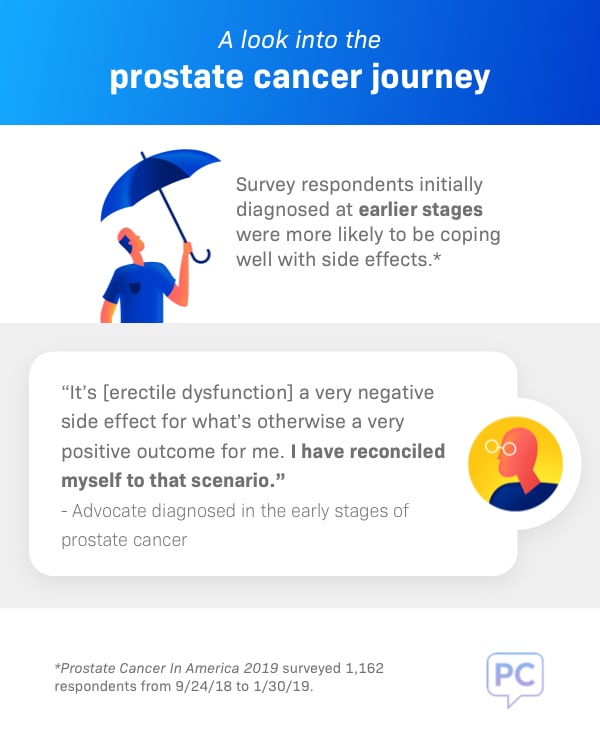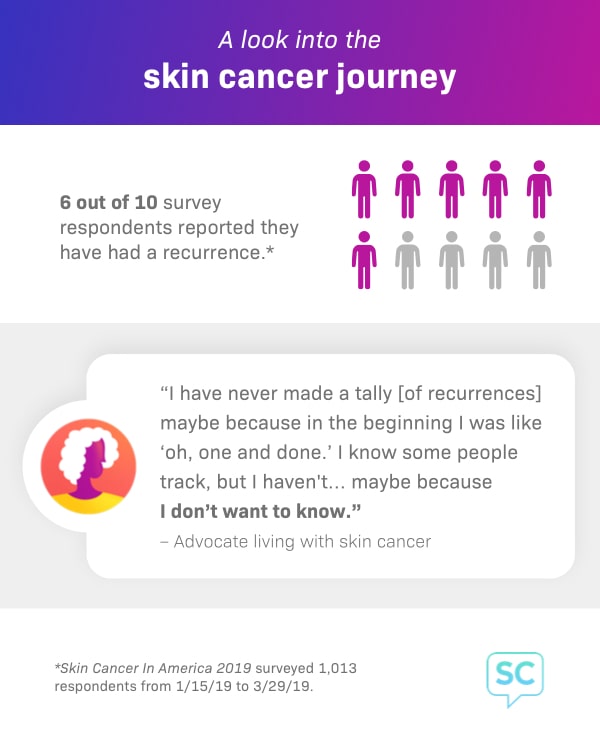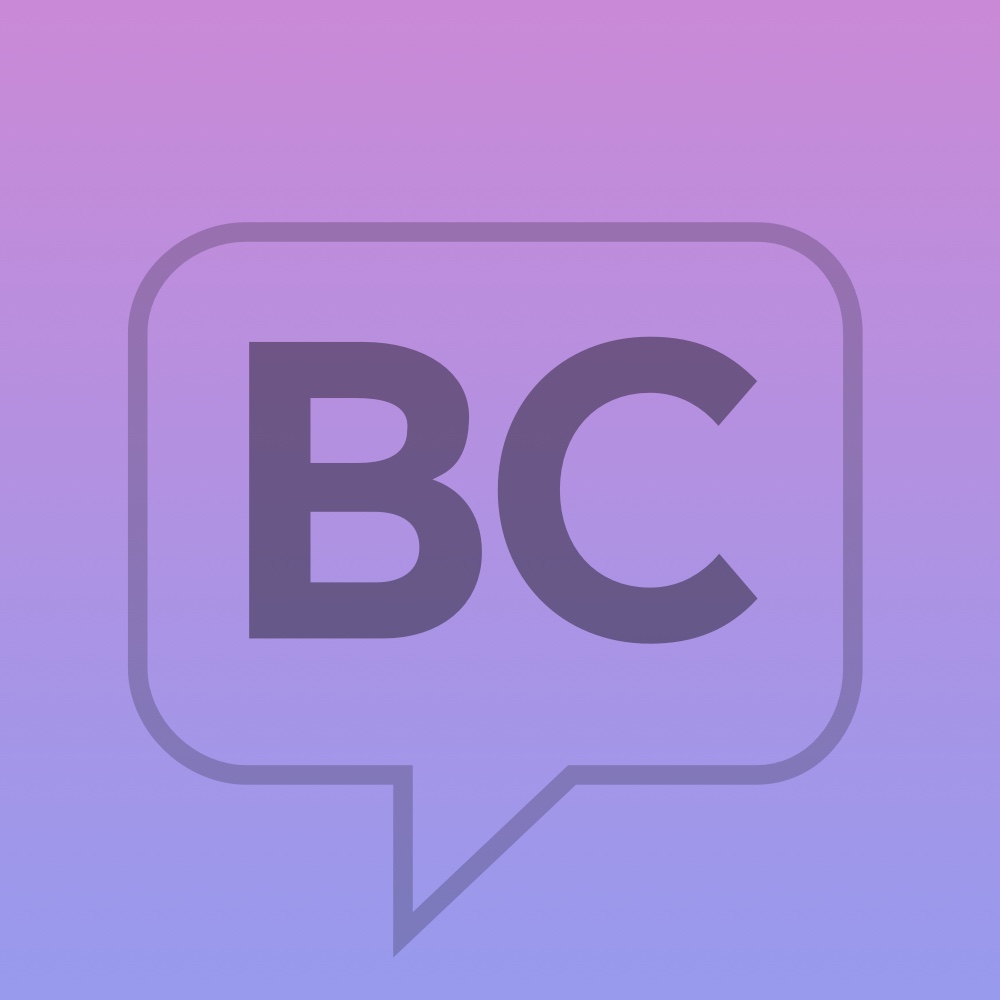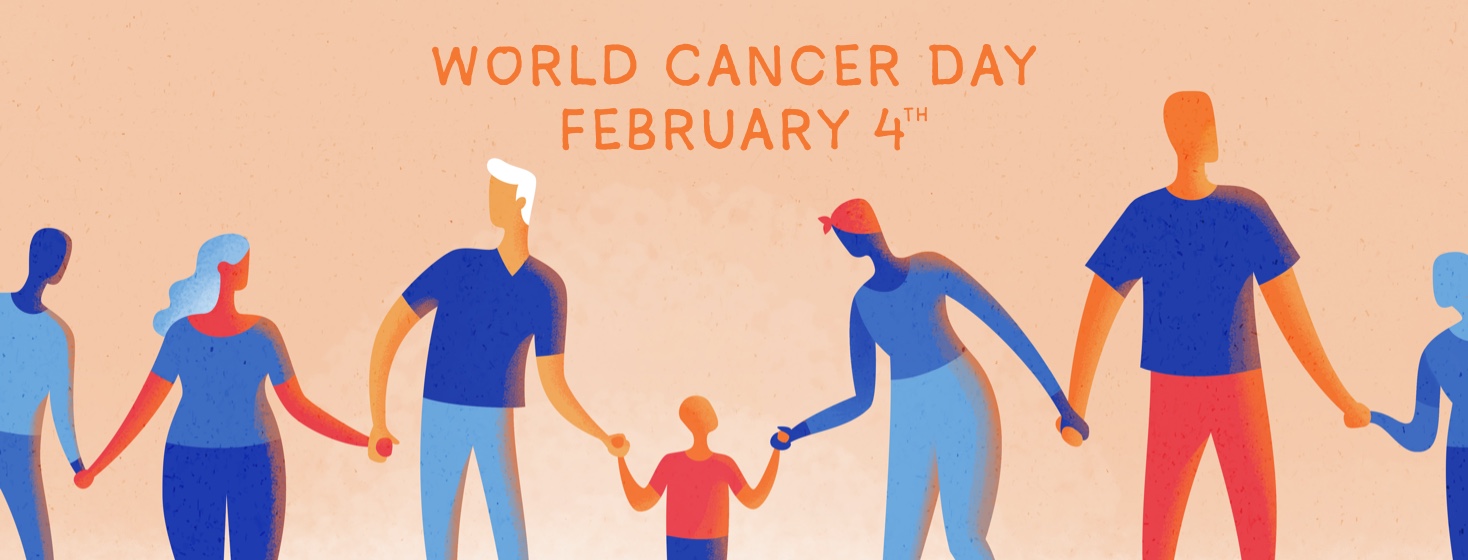
Exploring the Cancer Patient Journey on World Cancer Day and Every Day
– Using patient stories and patient-generated data to see the full cancer patient journey –
World Cancer Day is February 4, an internationally recognized day to illuminate the patient journey by bringing awareness to, and educating others on, the multifaceted aspects of living with cancer. The effect of cancer strongly impacts the quality of life for people diagnosed and is widely felt from diagnosis and treatment to remission. Every day, Health Union’s six oncology specific communities, AdvancedBreastCancer.net, BladderCancer.net, Blood-Cancer.com, LungCancer.net, ProstateCancer.net, and SkinCancer.net, provide people living with these cancers, and their caregivers, a place to connect with others and find information, support, and validation year round.
A key element to fostering open conversations and meeting people where they are online, Health Union’s annual syndicated surveys collect patient-generated data that offers meaningful insight into all aspects of life with a health condition, like cancer. On this World Cancer Day, discover how our patient-generated In America syndicated research findings, Living With podcast interviews with guests affected by cancer, and other resources help you dive deeper into understanding the cancer patient journey and the impact you can have.
Advanced Breast Cancer
AdvancedBreastCancer.net focuses on satisfying the needs of the advanced and metastatic breast cancer community, whose patient experience and treatment considerations can largely differ from the wider breast cancer community.

- Survey Finds People with Advanced Breast Cancer Experience Lower Quality of Life, Low Confidence in Treatment Plan Uncovering patient insights in the inaugural advanced breast cancer patient-reported survey, Advanced Breast Cancer In America 2019, survey respondents reported experiencing a lower quality of life and often feeling misunderstood in comparison to people with early stage breast cancer. People with metastases begin treatment swiftly due to lower survival rates than those with early stage breast cancer, resulting in less confidence in treatment plans and a strong interest in clinical trials in order to find a treatment that better controls their cancer.
- Living With Breast Cancer: Susan R. In 2013, at 43 years old, Susan R. vigilantly received mammograms to stay aware of her risk of breast cancer after her mother was diagnosed a few years prior. However, her general practitioner found that back pain she experienced was caused by breast cancer that had metastasized to her bones. In this podcast episode, Susan shares her story of living with metastatic breast cancer and how she has worked towards changing the metastatic breast cancer narrative through increasing awareness and research
Bladder Cancer
Despite bladder cancer being the fifth most common type of cancer in the United States, people living with bladder cancer often feel a lack of support. BladderCancer.net was created to fill the gaps for people living with bladder cancer who want to connect with others and share their unique stories.

- Females with Bladder Cancer Receive Less Support, Experience Lower Quality of Life in Survey Results Gender disparities among female and male respondents were found in the bladder cancer patient experiences, as identified in the Bladder Cancer In America 2019 survey. The findings show that female respondents report encountering more difficulties when trying to find support and experience anxiety when meeting their healthcare professionals for scans or follow-up visits. Comparatively, male respondents were more likely to say that they never felt judged or stigmatized for having bladder cancer and that they do not worry about their condition worsening.
- Living With Bladder Cancer: Paul H. Paul was diagnosed with bladder cancer in 2012 after experiencing symptoms for a while, but not knowing they were related to bladder cancer. He shares his experiences ranging from diagnosis, his treatment decision-making process, to recovery. Even though Paul responded well to his treatment, the experience is still a constant reminder that cancer is a reality and the worry for a potential recurrence is ongoing.
- Living With Bladder Cancer: Shirley N. For 12 months, Shirley couldn’t work, knew she was ill, but did not know what was wrong after being repeatedly diagnosed with urinary tract infections. In this podcast episode, Shirley details her experiences through the diagnosis and treatment of bladder cancer, ultimately having her bladder removed in a radical cystectomy.
Blood Cancer
Blood-Cancer.com is a community for people living with different types of blood cancer such as leukemia, lymphoma, myeloma, and myelodysplastic syndrome. Even though every form of blood cancer is unique, Blood-Cancer.com was launched as one community supporting all blood cancers because we saw from our data and research that people living with different types of blood cancers shared many common experiences. By uniting people living with different types of blood cancer, community members and caregivers can come together to find support through similar experiences.

- Half of Blood Cancer Cases Detected from Symptoms, the Other Half Incidental Of the 1,713 patients with blood cancer surveyed, half of respondents cited symptoms while visiting the healthcare provider as the reason their blood cancer was detected, while others’ learned through an incidental finding. The Blood Cancer In America 2019 results depict a strong correlation to how the cancer was detected and the specific type of blood cancer.
- Living With Multiple Myeloma: Cindy C Since 2008, Cindy has been living with multiple myeloma and uses her background as a science teacher to educate her followers on myeloma research updates and resources online as the “Myeloma Teacher.” In this clip from the full interview, Cindy explains why engagement is helpful for other patients to become more informed and offer suggestions to healthcare providers that they may not have had otherwise considered.
- Living With Blood Cancer & RA: Daniel M. Diagnosed with rheumatoid arthritis at a young age, Daniel knows what life is like to live with a chronic condition. In 2018, he also discovered he had lymphoma. In this podcast, Daniel discloses how cancer affected his relationships and his perspective on life, learning to “save the emotional fuel” in situations that used to bring more anger.
- Vincent G.: “For His 30th Birthday, This Leukemia Survivor Went on a Road Trip to Share His Story in 30 Cities” Profiled by Philadelphia Magazine, Blood-Cancer.com advocate Vincent G. recalls when he was diagnosed with acute myeloid leukemia in high school. After successfully completing eight months of chemotherapy, he thought he could leave behind that period of his life. However, after he reflected on his experiences for his 30th birthday, he learned that sharing his story can create connections and lasting positive effects.
Lung Cancer
Often a stigmatized and overlooked population, people living with lung cancer can find connection, validation, and support on LungCancer.net. This online health community provides comfort by developing a strong community and sharing information on emerging research to people with lung cancer.

- Lung Cancer Patients Who Haven’t Used Tobacco Are Diagnosed at Later Stages, But Have Higher Quality of Life The survey results from Lung Cancer In America 2019 illustrate the experiences people living with lung cancer face throughout their journey. When taking a closer look at the impact of tobacco use on people with lung cancer, the data shows those who have not used tobacco were more likely to have strong relationships and a positive quality of life.
- Living With Lung Cancer: Jill & Ivy In this special episode, two friends and contributors at LungCancer.net, Jill and Ivy, share their experiences after being diagnosed with lung cancer and its effect on their outlook on life and advocacy work. Their shared experiences brought them together, but their personal recount of their patient experiences display that no two people living with lung cancer are exactly the same. Jill had a family history of lung cancer, which prompted her to diligently have CT scans to screen for lung cancer and work as the president of a non-profit foundation for lung cancer research before being diagnosed. Ivy, on the other hand, never thought about lung cancer before being diagnosed with stage four lung cancer after noticing pain in her elbow and neck.
Prostate Cancer
Among the second most common cancer affecting men in the United States, many men with prostate cancer report confusion about treatment offerings and side effects. People impacted by prostate cancer can engage on ProstateCancer.net to become empowered with knowledge and community support throughout their experience.

- Initial Stage of Prostate Cancer Diagnosis Can Significantly Impact Quality of Life, Ability to ‘Feel Like a Man’ A key finding from the Prostate Cancer In America 2019 patient-reported survey revealed that men diagnosed in the early stages of prostate cancer tend to have different experiences compared to those initially diagnosed in stages three and four, who have a more negative self-esteem and self-image. Survey respondents who were diagnosed earlier noted feeling more in control of treatment options and coping well with side effects.
- Living With Prostate Cancer: Simon L. Simon was diagnosed with prostate cancer and was successfully treated during the early stages. In this episode, Simon explains how finding support and community with others also impacted by prostate cancer was crucial for him throughout his experiences. Due to his experiences, Simon was motivated to change careers to inspire and support others as a fitness instructor and personal trainer.
Skin Cancer
Skin cancer is the most common cancer in the United States. Almost 3.4 million Americans are diagnosed each year. SkinCancer.net was created to share resources, information, and support to people living with all types of skin cancer including basal cell carcinoma, squamous cell carcinoma, melanoma, and other rare types.

- Skin Cancer Recurrence Often Linked to More Risk Factors, Lower Quality of Life Skin cancer recurrences are common and an important topic of interest for people with skin cancer, as six out of ten people noted having had a recurrence in the Skin Cancer In America 2019 survey. When delving deeper into the experiences of those who have had skin cancer recurrences, they were more likely to be affected by a higher number of risk factors.
- Living with Skin Cancer: Judy C. A writer and moderator for SkinCancer.net, Judy Cloud has lived with skin cancer since 1995. Despite the perception by many as an “easy” or “good” cancer, Judy recounts her personal experiences with skin cancer as it affected her emotionally and physically. In this podcast episode, she closes by stating “having a tan is not worth dying for.”
Additional Cancer Resources on the Patient Journey
Explore other cancer information and insights such as thought leadership, whitepapers, and cross-site studies that apply to all of our oncology sites.
- Cancer, Connections, Community: The Art of Bringing People Together Amrita Bhowmick, Chief Community Officer at Health Union, shares her expertise on how custom online health communities provide essential emotional support for people diagnosed with cancer, meeting them where they are and with what they need, whether that be reading an article or engaging in discussions with other community members.
- Impact of Cancer Survey Results: Highlighting Tradeoffs Made in Treatment Decisions In this cross-site survey, over 1,500 patients diagnosed with cancer and 100 caregivers disclosed their perspectives on the impact cancer and its effects on their quality of life, including household finances, emotional health, and relationships.
- Seeing Shared Decision Making Through the Lens of the Cancer Patient | Whitepaper Often met with a sense of urgency towards next steps after diagnosis, cancer patients can feel confused and overwhelmed when making treatment decisions. From the perspective of cancer patients, see how biopharma companies can play a vital role in improving the patient experience through shared decision making and empower people diagnosed with cancer.
- Survey Finds Cancer Patients Satisfied with Their Doctors According to the 2018 HCP Satisfaction Survey, a cross-chronic condition survey, people with various types of cancer are more likely to feel satisfied with their healthcare provider, rating them highly on many of the patient-related tasks and interpersonal skills. Additionally, respondents with cancer were more likely to feel controlled on their current treatment plan when compared to people living with an autoimmune disease.
Our close connections with thousands of people directly impacted by cancer amplifies the experiences at any point in the patient journey. Health Union’s growing portfolio of online health communities can help you reach and engage people when it matters most through media advertising, marketing research, and clinical trial services. More Living With cancer patient stories can be found on our podcast archive.
By listening to cancer patients’ voices and meeting them where they are, we can ultimately learn how to best assist in raising awareness, educating and ultimately improving the patient journey on World Cancer Day and every day.


